Movement 2016: Winners & Losers
We came, we raved, we commented.
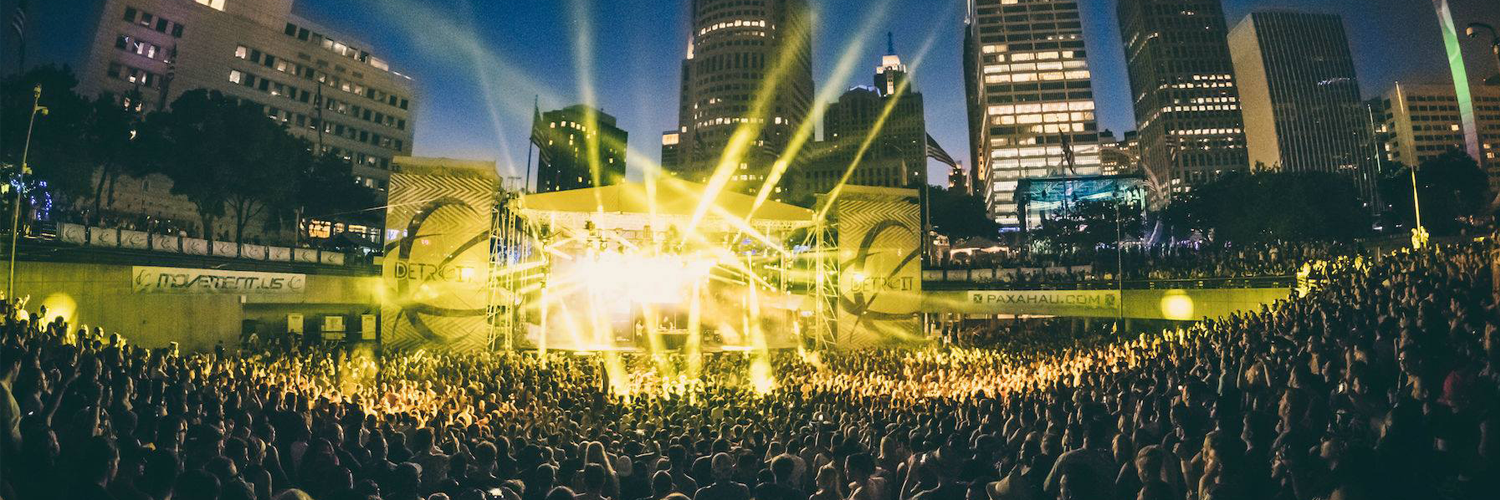
Movement 2016: Winners & Losers
We came, we raved, we commented.

Photos by: AJ Calzada, Chris Soltis, Douglas Wojciechowski, Mark Kruk, Brandon Rabotnick, Luis Nieto Dickens, Miranda Castillo, and Jeremiah Green. Interviews by: AJ Calzada.
Winner: Kraftwerk 3D
This was the number one act of the entire weekend. I will be the first to admit that I totally underestimated the 3D aspect of the Kraftwerk performance. Early in the day, you could find these red and black envelopes with robots and numbers printed on them, inside of which was a sturdy pair of glasses that were to be saved and used that night for the performance. I showed up to the main stage about three hours early to ensure a great viewing spot with my friends, and we sat through an incredible performance from Juan Atkins and Moritz Von Oswald as Borderland, and then Maceo Plex.
Finally, after Maceo Plex’s fans had left—more on that below—Kraftwerk took to the stage. It’s difficult to overstate how much I enjoyed this performance. The 3D aspect brought it to life and the extended jams, including the back-to-back performances of “Autobahn,” “Tour De France,” and “Trans Europe Express,” were enthralling. I understand that some people were complaining that the sound could have been bigger, but that is not really what Kraftwerk is. The group’s music has always been understated, and I never noticed any sound issues. If you have a chance to see Kraftwerk 3D, I advise you to jump at the performance. It was one of the coolest performances I have seen to date.
Loser: Maceo Plex
Maceo Plex, most likely, has some of the worst fans in all of dance music—fans that seem more interested in watching the performance through their phones than actually enjoying it. You could see many of them making their way to the stage during the final minutes of Borderland’s performance, all with their iPhones out and ready to go. To make matters worse, Maceo was bopping around on stage exuding a self-confidence that screamed vanity, not to mention dancing to his own tracks more than the crowd was. Also, playing “Solemn Days” by Levon Vincent does not buy you any techno credit in Detroit. Levon Vincent is from New York!
Winner: Need I Say More
This party is the stuff that raver dreams are made of. The majority of people you meet in Detroit during Movement that plan on going do so without knowledge of the name. They just say, “Are you going to Old Miami on Monday morning?” It’s difficult to beat the format of the party: a secret lineup, 7am start, and a comfortable grassy back yard of a VFW bar. People start queuing at 6am, but I’ve learned it is better to arrive around 8.30am or 9am—or 11am if you don’t want to wait an hour to get inside. At the entrance, it’s likely that you’re going to be giving your money directly to Seth Troxler.
The lineup is always kept under wraps until you get there, which is when word starts to spread. This year’s lineup included Magda, Mathew Jonson [live], a three hour set from DeWalta & Shannon, and an opening set by Taimur Agha and Nadir (a.k.a. Ostrich) as The Agha Brothers. I arrived at 11am after a full night’s sleep, and the party was going off . There was no line to get in, and you could still get a summer shandy on tap with no wait.
The party is always great: everyone is always really cooked up, with most people there on little or no sleep. When I showed up, DeWalta & Shannon were already in full swing and the crowd was really going after it. These guys can literally do no wrong, and they played a flawless set that had the crowd eating out of Shannon’s record bag. It sounds like a repetition to say that this party was best of the weekend, but every year it seems to continually improve.
Loser: Guy Gerber
Gerber’s performances of late have been quite lackluster. His Boiler Room Ibiza performance after Ellen Allien was poor, which followed in the same manner as his $150,000 hand glove-themed party and residency at Pacha. I heard from a few people at the festival that they were yawning during his set on Monday night, and I went over to confirm it for myself. It made me question why he doing sub-headlining the Made In Detroit stage? After a weekend of some of the most cutting-edge and classic DJs in the game playing on that stage, having Guy Gerber play at 9pm on Monday night was a complete travesty!
Winner: The Sound at the Main Stage
Not much needs to be said about this sound system. In short, it was absolutely pristine and on point, making every moment spent in front of it really enjoyable. Rumors were spreading that Kraftwerk had requested this particular system, but they did not use it to its full potential, opting for the understated rather than the in-your-face boom that it was capable of. Sunday was a different story, however: Dubfire, Chris Liebing, and Modeselektor all tested it out, shaking our bodies to the point that it became difficult to breathe.
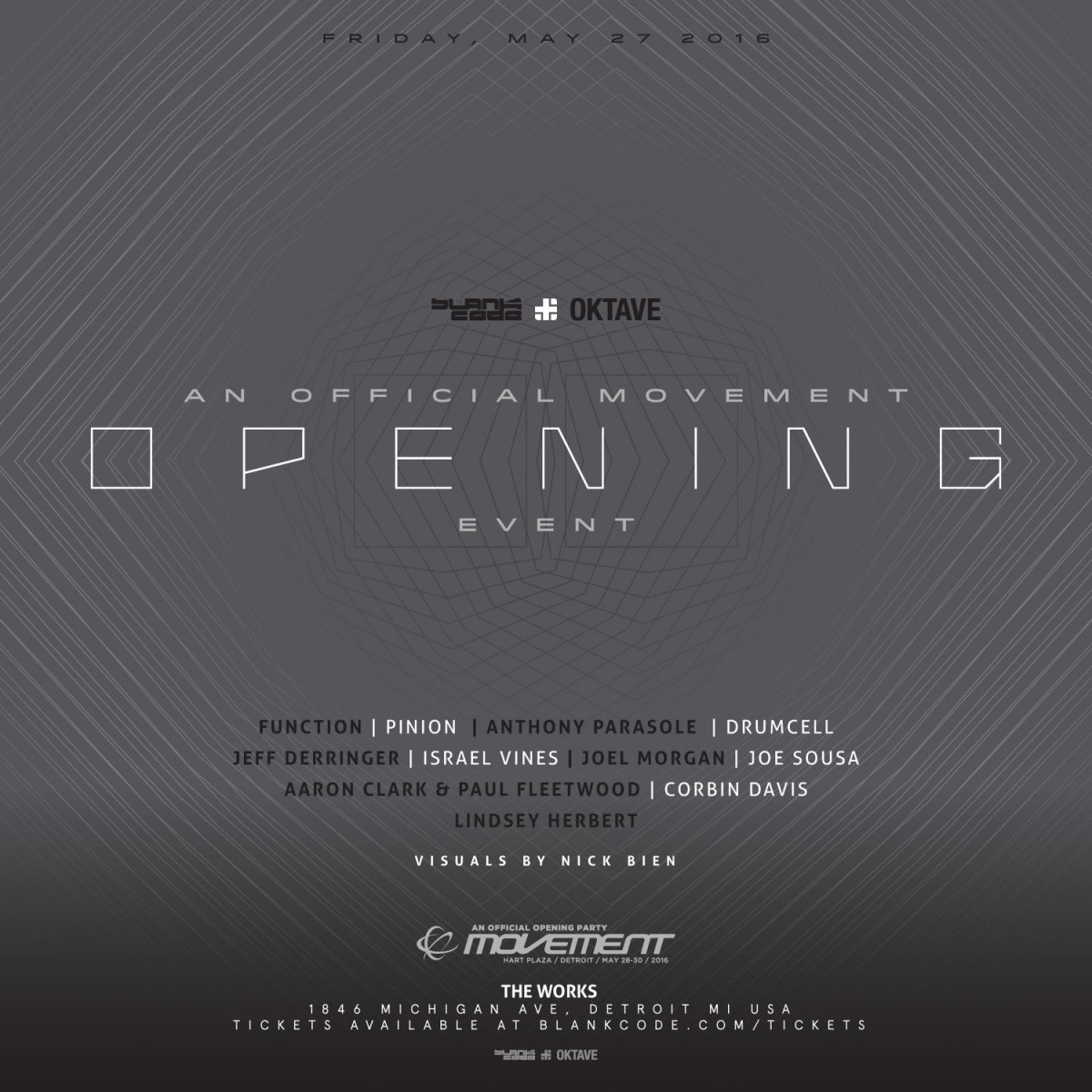
Winner: Oktave & Blank Code Pre-Party at The Works
Oktave is a bi-monthly event series that currently takes place at Smartbar in Chicago. The series is curated by heavyweight techno producer and Smartbar resident selector, Jeff Derringer, and the night focuses on the best in underground and international techno talent. Blank Code is the Detroit-based label and party series that takes place every month at The Works in Corktown, and has recently hosted the likes of Mark Verbos, Punisher, and Brian Sanhaji.
These two forces teamed up to throw one of the most-anticipated pre-parties that Movement had to offer this year. In only their second year as a collaborative team, Oktave and Blank Code managed to put together a lineup that included Droid Behavior and Dystopian artist Drumcell, Berghain resident, Anthony Parasole, and Infrastructure NY label-head, Function.
The Works seems to improve on the venue every year, with an LED wall and an expanded patio being added over the past year. The vibe was perfect and the sets were blistering. Function continues to impress at every level; whether it’s on record, live, or on the decks, he continually raises the bar at every stage he plays. The party was still going strong when I left at 6am, and it was worth every bit of sleep that I lost on the first day of the festival. The only downside to the event is that the staff at The Works could use a shakeup: the same crusty doorman has been trying to scam $5 for re-entry behind the promoters’ back for as long as I have been going there.

Loser: Taxis
The cabbies were really feeling the impact of Uber and Lyft this year and you could read it all over their faces. I guess people finally got sick of all the games that the taxis have been playing all of these years (i.e. driving down the freeway to nowhere, only to end up a couple of blocks from where you started, or and not turning the meter on and trying to charge ridiculously high flat rates for a ride that is less than five-minutes long). The only cab that I took in five days in Detroit was when he said he would match the Uber price, so I canceled and was still charged five bucks by Uber. The only downside to Uber was that by Tuesday morning at 5am, the surge pricing was at 7.7x the normal rate because there was only one Uber left on the road. Downtown Detroit is not that large, and an Uber ride without surge pricing should be no more than six bucks.
Winner: Ellen Allien
What have you been doing since you arrived in Detroit?
I went to Submerge! I bought an Underground Resistance t-shirt—I lost mine sometime in the past. In the past, you could buy a UR t-shirt at Hard Wax, but they don’t sell them anymore.
“…but here in Detroit the progress is slow. The people in the streets are sad, and some of them do not see a future. It is very sad actually how America can let down their history.”
Can you tell us about the connections between Detroit and Berlin? Can you draw any parallels?
The music connections are right there with acts like Kraftwerk and Juan Atkins, but the main connection between the two is the feeling that each city puts out. I am from West Berlin, and when the wall came down there was this melancholic feeling that I think Detroit also shares, in a way. The story behind Detroit is different, but the feelings are the same. On the other hand, though, these experiences pave the way for creativity. If you are creative, these situations do one of two things: make you depressed or make you stronger. Sometimes it is hard to see what is happening in Detroit because in Berlin there have been many changes and we have found a way to find solutions; but here in Detroit, the progress is slow. The people in the streets are sad, and some of them do not see a future. It is very sad how America can let down their history.
How was your set yesterday?
It was good. I played “Voyage Voyage” from Desireless, and I played a track by Anne Clark. I played tracks that are a mix of old and new, and I played tracks that are a part of my DJ history. These tracks are not easy to mix because it is vinyl and the sound system was not loud enough, or I did not control it right, so there were some mistakes, but if I play the easy way, I get bored. The tracks I play have to make me move my ass. It does not matter if it is easy to mix, it has to be played.
It’s risky, but if you do it and do it well, it can be inspiring. If something is perfect, it is boring for me. I need that jam session. I need that improvisation. With Moderat, for example, Squarepusher, or Mathew Jonson too, the best moments are when they are jamming, and I need that in my DJ sets. When you make a mistake, it shows your true talent. Back in the day, I went through a period where I was into taking different things, and I was completely into the perfect DJ set. I didn’t want to hear long melodies because they would make you tired and we were staying up for hours. I wanted to keep on the beats perfectly—no complications. Maybe it was the drugs!
You are now traveling all over the world, performing day in and day out. How do you give so much of yourself to your fans and the music? How do you keep going?
I deal with a lot of strangers in nightlife. I meet a lot of fucked up people, but they are also really good people. Flexibility, human love, and working with people is how I keep going. I love working with people, and I also love making something good that is not working out. I like to mix with my people. If I am always standing in the VIP zone, nothing special ever happens. Nothing. The only way I survive through all of this is my addiction to music. I love to dance and I love to feel the bass on my body. Before I started doing music, I went to school for acrobatics and dance, so I have always been a sporty person and I have always been moving my body to the beat. It is definitely an addiction for me.
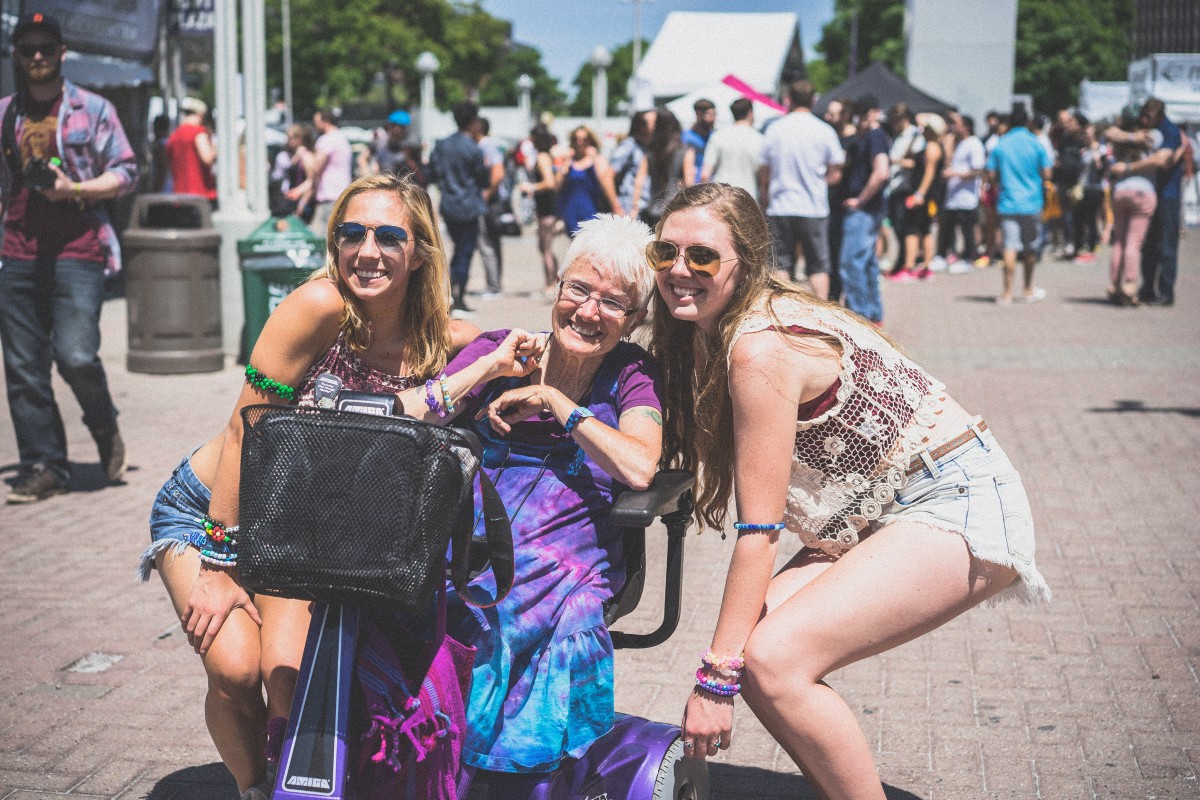
Winner: Grandma Techno
Can you tell us about your history with Movement?
My first festival was 2005. I was not born in Detroit, but I am from Detroit and I have been here for 50 years. I think at that point in my life, I was around the age of 63 or 64, and I have a friend named Pat that I would go to music festivals with. Detroit has tons of music festivals throughout the year, and we had gone to just about all of them—but not this one. That year, the festival was being put on by Carl Craig and was called Fuse-In. The festival cost $40 back then, and that seemed like a lot of money to pay for something we didn’t really know anything about. We went to the festival and we both ended up absolutely adoring it, particularly me. I could stand up and dance, and I just did it for hours. I absolutely fell in love with it, and I fell in love with the kids. I love Hart Plaza and I love everything that happens here in Detroit—there’s just something about the energy here. It was almost like the 1970’s love and peace movement: everyone was really gentle. After that first experience, I’ve never stopped coming to the festival.
When did you receive the name “Grandma Techno?”
I first received the name in 2007. I was at what used to be the old Beatport stage, and I wanted to go to another stage to see someone; however, it was difficult for me to get through the crowds with the scooter that I currently ride. I think there was a security guard beside me and I asked him if he could please make a way for me. So he did, and the people were very nice and started to clear a path for me when all of a sudden a voice started calling from the back saying, “Make way for Grandma Techno!” I had never been called that name before that time! Then the whole tent started chanting, “Grandma techno! Grandma techno!” and the name totally went viral!
For a couple of years after that, I would have hundreds of kids coming up to talk to me or take a picture, though the name really started to kick into high gear in 2012 when I started my portrait book that centered around Movement. I named the book “They Call Me Grandma Techno.” I have a friend named Clarence Johnson who suggested we film a promotional video about me which has the same title as my book. So Clarence followed me around and filmed me day and night at the festival, and then edited the video and put it on Vimeo in 2013. Not too much happened when the video was first released, but two weeks before the festival in 2014, Paxahau contacted me asking if I would be ok with them putting a link to the video on the Movement Facebook page, and I said, “Sure.” They then wrote me back to make sure I was aware of what this would mean, and I said, “Sure, I don’t care.” Little did I know!
Two weeks later I came to the festival and everything had changed. All of a sudden I was this celebrity, and I was being mobbed. I could no longer take photos and really could no longer go from one stage to another. It spooked the hell out of me to be perfectly frank, and I could now see why some of the artists prefer to stay underground and not walk out into the plaza. The people were so loving though, so I began to receive it the best I could. Now I have my friend Patrick who is from San Antonio who had helped me out one time earlier, and he adopted me in a way and became my bodyguard. This is Patrick’s third year as my bodyguard, and with his help, the celebrity works. I mean, like when I eat, Patrick makes sure to tell people, “No, no, no, you gotta let Grandma Techno eat her dinner,” and stuff like that. He protects me and helps me get from one stage to another, but it is fine. When I am at Movement I am in a different space and everything is fine.
Can you tell us about some of the personal experiences you’ve had since you have gained your recognition?
One young woman named Fernanda came up to me and started to hug me and burst into tears. She was from Brazil and she started sobbing and telling me that all she wanted to do was to meet me. When this kind of thing happens, all I want to do is be there for people, because for some people it means a lot and I am alright with that. I think what is happening is when I look at myself, I only see me, and not Grandma Techno. But Grandma Techno is a model for young people that shows them that you can indeed enjoy this music when you are older, and that you can still have a life when you are old. I think that is the important thing to remember, so if I can do that then everything is good. This year, I am in a really good space with myself. Everyone here is so tender and loving, and they are wearing their hearts on their sleeve. On my drive over here, I was thinking to myself about what I want to accomplish this year at the festival, and I kept telling myself that all I want to do is be patient and kind, so that everyone can have the best experience possible, especially in relation to me. Can you imagine being surrounded by love? That’s where I am.
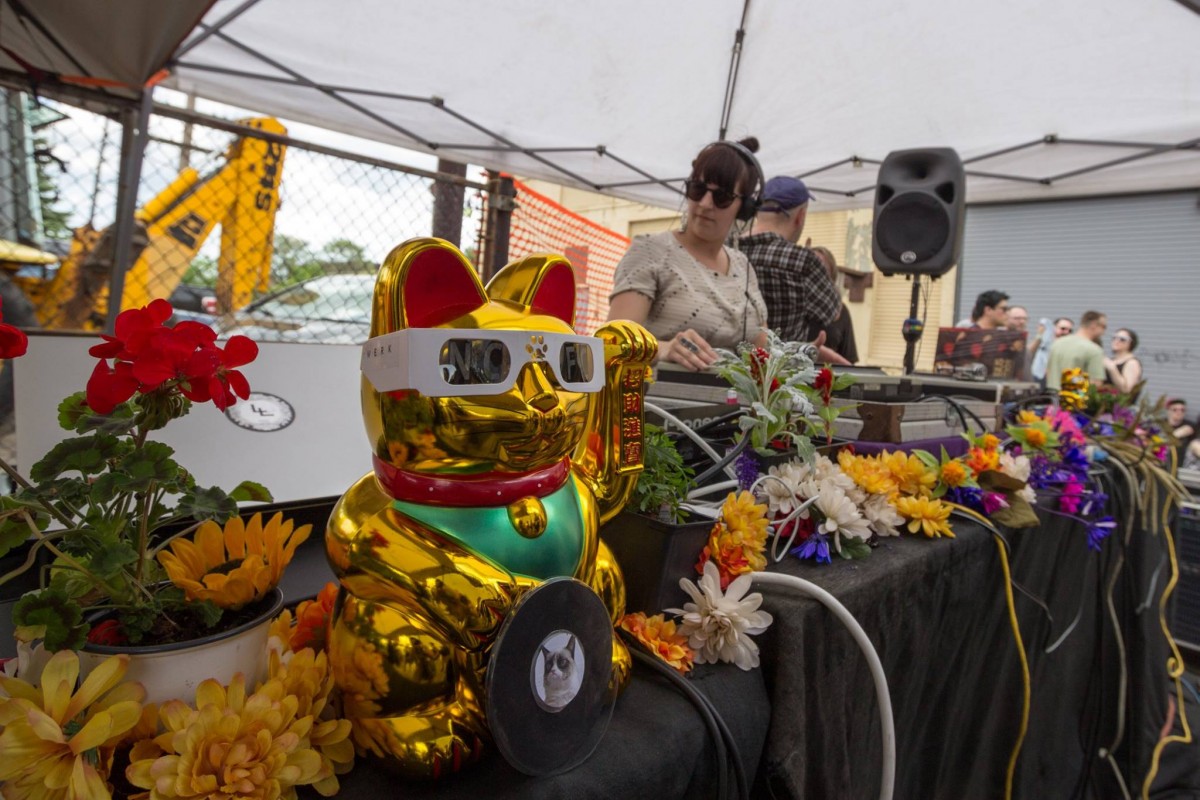
Winner: Sassmouth
What makes Detroit and Movement special for you?
It still has the exact same vibe and special feeling that originally brought me here all those years ago. Detroit is Detroit. The people that live here are still here, and they are still doing their thing. You can find these people everywhere! You can find them at the after parties and you can even find them at the hotel that I am staying at. The moment I saw a bunch of people getting ready to go to Soul Skate, I knew I was back in Detroit at Movement. Every time you walk into an elevator at a hotel, someone starts a conversation. For me, this is what Detroit is all about. The vibe is always there!
Can you tell us a bit about your Industry Brunch party here at Movement?
Sure. It’s a party that actually started in Chicago at my friend’s restaurant. It was kind of an idea that we took from London where we were hoping to throw a proper day party, where bartenders and people who were working the weekend could come and hang out and enjoy their day off with proper music. So, four years ago, we brought the idea to Detroit and the first two years we held it at TV Lounge. Now, for these last two years, we have held Industry Brunch at Tangent Gallery. It’s like a techno family reunion. I get to see all of my friends and family from all over the US, as well as more and more international family now too.
What is the next step for you?
I kind of enjoy being in the moment, so I will probably keep doing what I am doing. We will probably do some Industry Brunch parties in Chicago this summer. I will continue to DJ at Smartbar in Chicago, and in San Francisco and Pittsburgh for Hot Mass, as well as at the Midwest Fresh anniversary at the end of August. I will also continue fighting to put out good music on my label, God Particle.
Winner: Volvox
How was the Discwoman party?
It was great! It’s not easy promoting parties with all women line ups as people always with think its a gimmick or tokenistic or whatever, so Detroit is a really important place for us to show that that’s not the case and our turnout and crowd proved that on Saturday. People want to see more diverse line ups, more diverse lines ups bring out more diverse crowds, and parties with diversity are the only parties we’re interested in promoting, attending, and supporting. It was such an honor and privilege to be given space to platform the line up that we curated in the birth place of techno, and to be welcomed into the city with such a warm, grateful response. It’s hard to describe how awesome that is.
How many times have you been to Movement?
This will be my eighth time coming to Detroit for Movement. I started coming eight years ago and I absolutely decided that there was nothing more built for me out there than this festival.
How do you think the festival has changed since you first started attending?
It’s very much cleaned up, actually. When I first came here eight years ago at this very bar (TV Lounge), I definitely went to some of the most out-of-control parties that I had ever been to in my life.
Which parties were those?
The Shit Show I and The Shit Show II. They don’t do those parties anymore. They were way too much!
Can you tell us an old story from The Shit Show?
Yes, please let me tell you a story about The Shit Show. So, we were there and we had been partying all night. We were still there at 9am, when everyone says, “Guys! Come outside we have something to show you!” So we go outside and they had set up a petting zoo. It was 9am and there was a petting zoo with all of these sober animal handlers and all of these twisted party-goers freaking out over miniature llamas and Angora bunnies. Honestly, it was one of the most interesting tactile experiences that I have ever witnessed at a party. A petting zoo? Come on. It was a total surprise. Everyone loved it!
What is coming up next for you?
Right now, I’m really proud of the scene in the US and I am very proud to be a New York DJ. I throw a monthly party at Bossa Nova Civic Club called Jack Dept. I have Aaron Clark from Hot Mass coming out to play after the festival. I have Cardopusher coming out soon too, and I recently opened my Boiler Room set with his track.
At the moment, I am really trying to tie everyone and everything together when it comes to North and South America. I am Brazilian, so I just spent a month there, with plenty of time in São Paulo too. There is a massive, amazing scene going on there that has a lot to do with New York. I think that is because there are physical similarities between the two cities: both are dark, hard, gritty, industrial and kind of commercial. There is a whole group of people there that I am trying to promote to New York. I recently brought out a DJ-producer named Amanda Mussi from São Paulo for a night at Bossa Nova. Amanda is like the São Paulo version of me when it comes to personality and work ethic. She is throwing parties and connecting people all over South America, really pushing that techno sound. São Paulo is still kind of stuck in this minimal prog-house thing, so they are a little behind, but Amanda is pushing them into more techno with her party called Dusk. Next year we will be doing more stuff in South America like going to Brazil, Uruguay, Paraguay, Chile. I am very active in connecting all of this stuff and getting everybody moving.
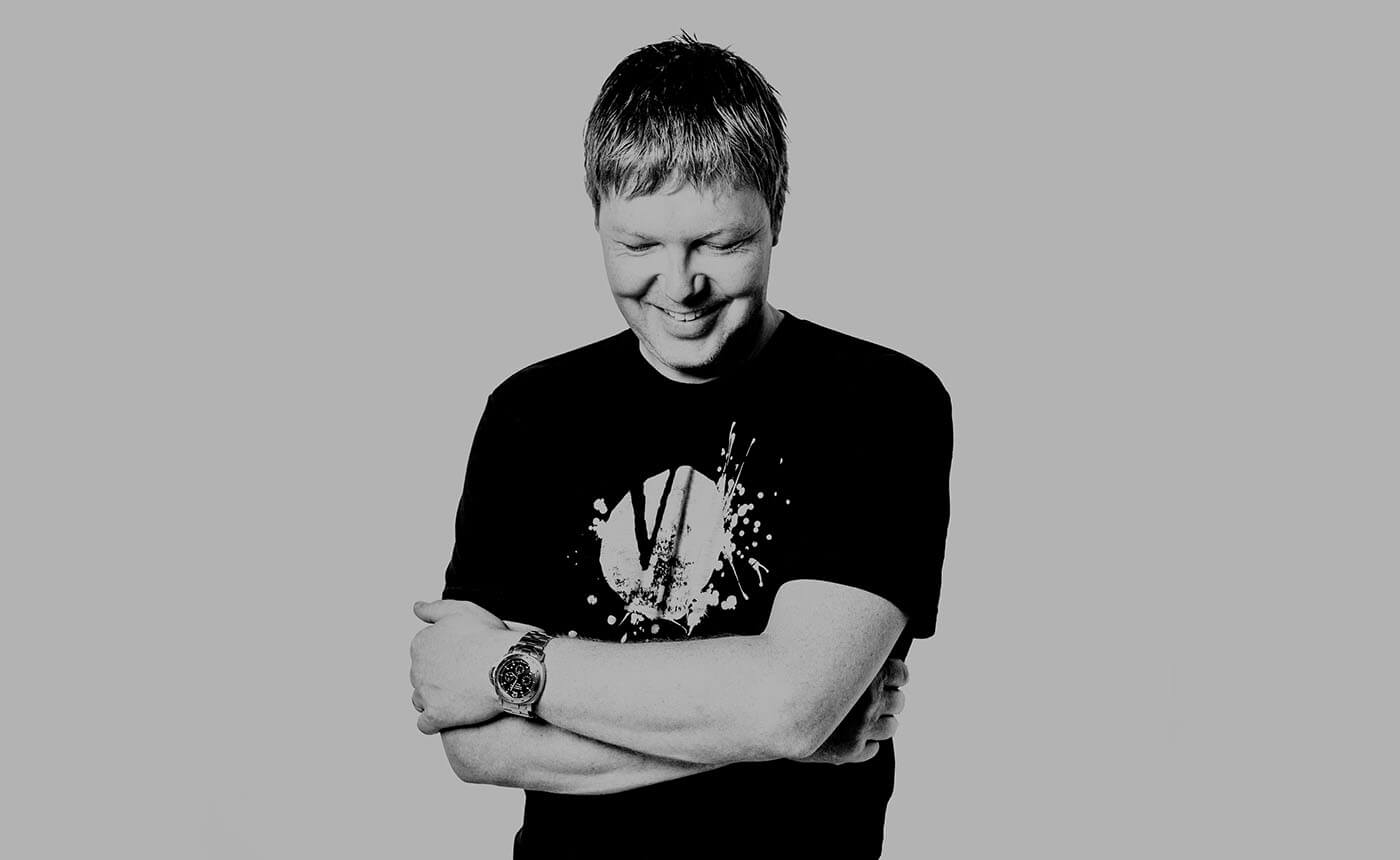
Winner: John Digweed
When you are selecting tracks for a gig, how do you know what you want to play?
For me, it comes down to the fact that the same set does not fit every occasion. I literally think about every set as an individual gig. Every show is a one off. You have to read each gig and read the crowd. I think because I’ve been doing this for so long that I have an understanding about how it works and what works, and when I am playing, I know if I need to go in this direction or that direction. It is not like I have a box with top 20 tracks on it that I can fall back on.
I have seen you play multiple gigs where you play for six to eight hours. How do you prepare for these longer sets?
When I first started DJing, you had to play the whole night anyway. When I was 17, you had to play five hours because that was the standard. You went to the club at eight in the evening and made sure everything was set up, checked the speakers, and made sure everything was working, then you played from nine until two. So, you know, DJing for three or four hours now is quite easy. I just did Stereo on Saturday in Montreal and played for eight hours.
If you love what you do then you will excel at it. In my life, if I am doing something I enjoy, I spend more time on it and work harder at it. If it is something I don’t like, I want to get it done as quick as possible. If I didn’t like it, I would be playing my two hours that are stated in the contract and I would be out the door. So, the fact that I do play longer sets is because I love what I do. I am in a privileged position. To do something that is your passion and to get paid for it is something to be cherished. I never take it for granted and I think that if you look after your fans, you will have them for life. If you disrespect them or start getting lazy, then those people are not going to jump on a plane to see you play, because they are going to be like, “You know what? I have seen him a few times recently and he didn’t seem into it—I am over it.” If you want to keep those fans on side, you have to play your heart out every single gig, and that is what matters.
You have played Movement three times in the last four years. How did you become a staple for this event?
I think it is because Movement sees that I am dedicated to my craft. I play with passion, and when I come to play I am positive that they know what I came to do. It is an amazing festival to come and play because the entire site is dedicated to house and techno and the best acts in the world, so it is a real privilege for me to be playing here. Every year, when I get the call asking if I want to play Movement, the answer is an automatic “Yes! Book it in.” What’s nice about this city is that it is so welcoming for a festival, you know? Some cities will tend to say things like, “Ah yeah, not another rave in our town,” but this city welcomes it with open arms and supports it. Everyone is behind it. It is such a wonderful thing to have. People travel from all over the world to be here and that is a great asset to the city.
I wanted to ask you about The Social Festival coming up in September and the reunion with Sasha. Are you excited to get back to performing in the booth with Sasha?
Yeah! It is six years in the waiting, and I think a lot of people will be excited to see us play. We did one gig back in April at Ministry of Sound, but no one knew about that one, so it was a complete surprise. I think the fact that we are playing together is a nice bonus for us and for the festival, and I think a lot of people are going to come out to see us play.
You know that picture where you are playing on Brighton Beach and you are playing on the turntables and the crowd is just absolutely massive? Can you tell us a bit about how you were feeling back then and what it was like to play that show?
I didn’t really have a clue as to how big that party was going to be. My friend Norman asked me to play it. He had said, “Yeah, we had about 30,000 people last year. We are hoping for 40,000 this year,” and I was like, “Ah ok.” We were on top of the Brighton Center overlooking the beach doing some press and then we had a look at the beach and realized there were more than 50,000 people there! By the time I went on, the party had grown even more—it had become absolutely massive and there were people for miles. I was absolutely gobsmacked! One of my friends summed it up perfectly, he just said: “That little stylus was holding all the weight of the world at that moment.”
Support Independent Media
Music, in-depth features, artist content (sample packs, project files, mix downloads), news, and art, for only $3.99/month.

